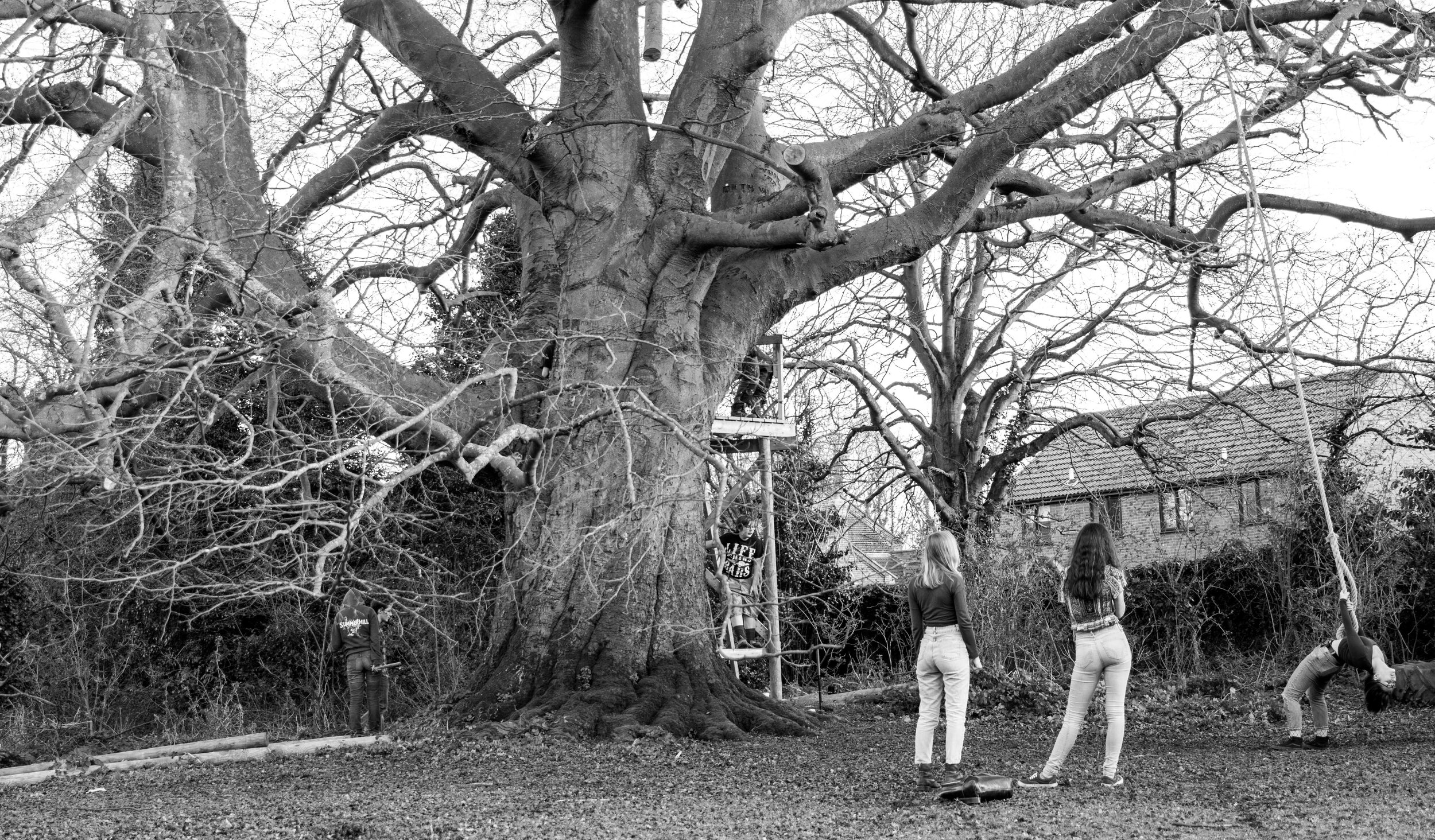The Very Basics - Information for Parents
Summerhill School is in Leiston, Suffolk, in the United Kingdom. That's in the countryside of East Anglia, 10 minutes from the North Sea. Three hours from London.
It is a boarding school, but we do have day pupils. Most have moved here specifically to be near the school. It is common for parents of younger children to move here for a while so that the child can start off as a 'day pupil'.
Day pupils may come from five years old.
Some children are very happy to board early (we do not take five year olds as boarders), and some prefer to wait a year or two.
A complete Summerhill education usually ends at 17 years of age, though some stay on for an 'extra' year if they, and the school, feel that is the best thing for them.
Leaving early is not advised because it is important to have the whole experience of Summerhill which means going through the whole age cycle. This is not a school for a 'temporary' break from the mainstream. A Summerhill education offers each child a sequence of important social, emotional and intellectual experiences that should not be missed. Those pupils who leave before their 17th birthday are considered to be leaving early and very often regret it in later years.
Summerhill does not enroll children over 11 years of age, though occasional exceptions are made.
Summerhill is an international school with, at varying times, children from England, Germany, Norway, Holland, Switzerland, Poland, China, Israel, America, Korea, Taiwan, Japan, France, Russia, Lithuania etc. This makes for a wonderful multi-cultural environment.
There are usually between 65 and 75 children and around 16 full time staff. There are several part time staff and many other adults who help keep the school running smoothly. Summerhill is a small community of children and adults who all live together. The school is set on 11 acres of woods and fields, with plenty of uncultivated areas to play.
There is no regular parent involvement at Summerhill. They are able to visit during term time on allotted weekends and the children get three weekends off each term.
In spite of this, many parents become good friends and participate from a distance with their approval and with anything helpful they can offer. We also have a really nice Summer half-term weekend when parents are invited to come and stay for a few days and relax - but the philosophy of the school is to encourage children to live their own lives, and make their own decisions. The children value their independence and the vast majority prefer parents not to be a part of it.
Most parents believe in the philosophy of the school, but some parents are looking for an alternative option for their children after dissatisfaction with mainstream education. Generally, the mix of children at Summerhill is the same as at any other school. Summerhill is not a school for problem children. Having said that, the school's ability to allow children to experience natural emotional, social and intellectual growth often has an extraordinary effect on self-esteem and positive personal development.
But Summerhill is not a miracle worker. Some children who have come to the school with problems are still going to have to deal with many of them into their adult lives. We have a very good record of helping such children, but it is no magic 'fix' or utopian cure-all.
Qualities we typically see in Summerhill pupils are: Self-esteem, tolerance, integrity, fairness, understanding, sensitivity, compassion, assertiveness, creativity, individuality, humour, self-motivation, and common sense.
Children begin at Summerhill, once accepted, at the beginning of any new term. ( September, January, April ). There are generous holidays to allow all students to travel home for realistic periods of time : 4 1/2 weeks at Christmas, 4 1/2 weeks in the spring and 9 weeks each summer.
Parents interested in sending their children to the school may visit on specially allotted days when they will be able to talk to staff and see a school meeting as well as having a good look around.
There are no formal interviews with parents or prospective pupils as we rely a lot on meeting the children and talking to both parents and children. We also require a lot of information on our application form.
As there is no training ground for Summerhill we have to rely on our considerable experience when making decisions about which children we can take. This will take into account the present climate, number of children of certain ages, number of day pupils and gender groups as well as the sort of problems we may be experiencing in the community at the present time. A live-in democratic school such as Summerhill is an organic process which makes it likely that some children will not be admitted for no reason other than the fact that the dynamics of their particular area would not be good at the time in question.
The freedom of Summerhill can be very beguiling and sometimes children struggle with the concept of 'freedom with responsibility', which is one of the founding principles of the school. Each child at the school needs to be able to learn, through the process of the self-government and school meetings, how to live harmoniously with the personal freedom they are given.
At Summerhill everybody is judged as individuals, whatever their ages.
We feel that Summerhill pupils are better prepared for the outside world than most other young people. Pupils are used to being in control of their own lives and making decisions for themselves - just as all adults do in their daily lives. They decide what to do, when, and how to do it. Critics believe that our pupils will find it difficult to adapt, as there is no compulsion at Summerhill, but there are many things that need to be done in order to keep the community running. If we, the members of the community do not do them, then they do not get done at all. Instead of being compelled to do things by somebody else, you have to take responsibility for yourself and the community around you. You have to be self-motivated.
Living in a democratic society where grievances are heard twice each week in the school meetings gives the pupils a strong sense of justice as well as an ability to listen to, and understand, the other person's point of view. Thus they are well prepared for interacting with others in the outside world.
Qualities we typically see in Summerhill pupils are: Self-esteem, tolerance, integrity, fairness, understanding, sensitivity, compassion, assertiveness, management skills, creativity, individuality, humour, personal interaction skills, motivation, and common-sense. Schools and colleges report that they find our students a pleasure to work with.




